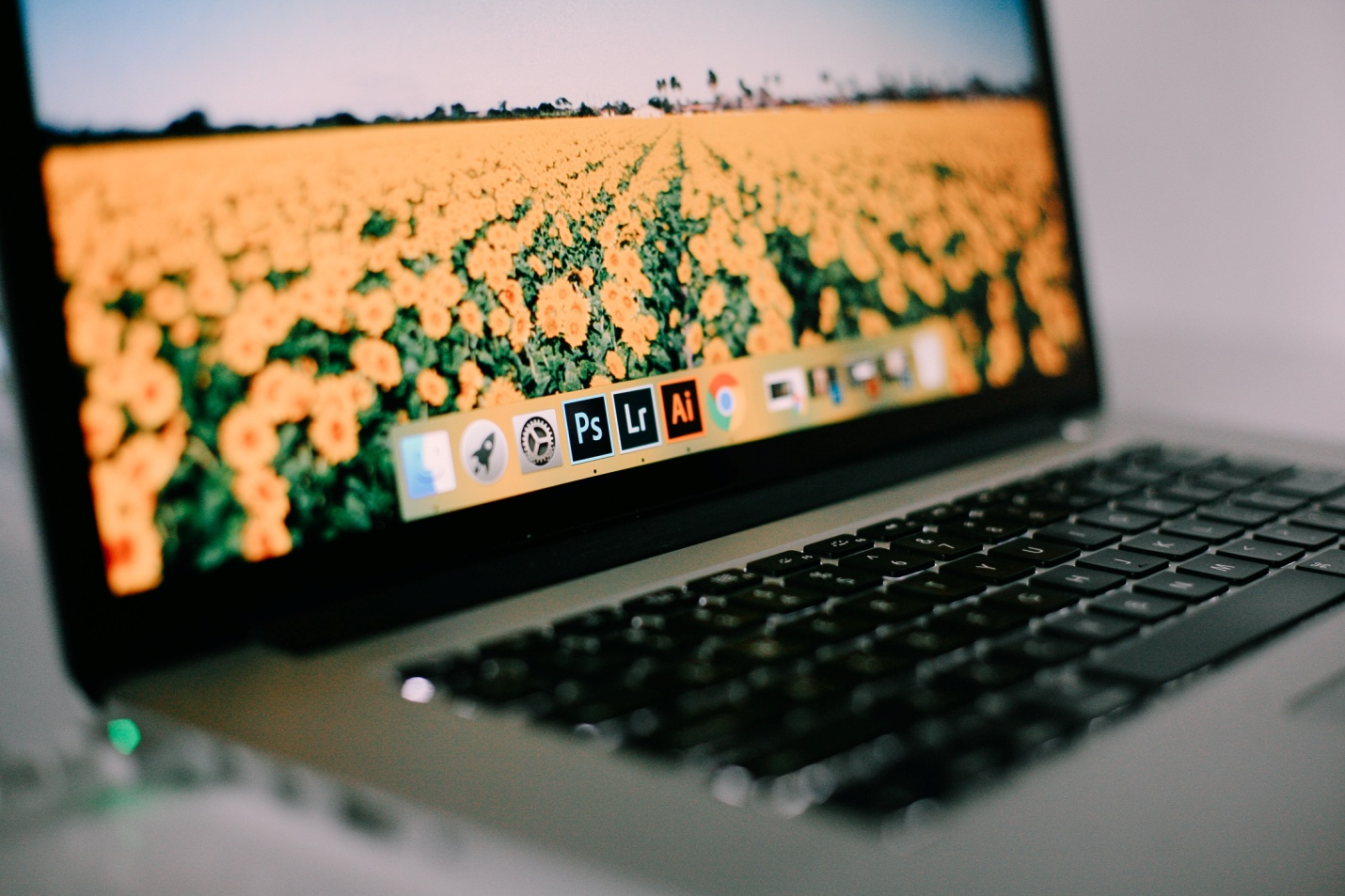Are you trying to figure out a way you can save a silhouette file as a JPEG, PDF, or PNG? We’ve got you covered with recent updates.

The good thing is that the free version of Silhouette Studio allows individuals to save designs in the form of formats to be used exclusively with Silhouette Studio. This includes .studio, .studio3, and .gsp. We admit that this can be frustrating.
However, we’ve figured out an easier way to save a silhouette file as a JPEG or PDF. Read on to understand exactly how to do this on a Mac or in Windows, depending on your preference.
Why You Must Know How to Save a Silhouette File as a PDF
Even though you may not think so, learning how to save a design as a PDF can take you a long way. Here’s how:
- You may decide to get your design printed using a top-notch printer at a copy shop.
- Your client may want to see a copy of the design before they give you the green light to continue with their project.
- If you want to put up your designs at an online shop as your portfolio.
- You may want to show your design to other individuals who do not have access to Silhouette Studio.
- You may decide that you want a design software such as Illustrator to help you edit your designs.
If you choose to show your design to those who do not have access to Silhouette Studio, you will need to save it as a common file type. This includes PDF, JPEG, and PNG.
How to Save a Silhouette File as a JPEG

So, the real question is how to save your Silhouette file in a format that you can use it? The following methods have been tried and tested using Silhouette Cameo 4, the Portrait 2, and Silhouette Curio.
Business Edition
The best part about the Silhouette Studio Business Edition is that you can easily save your design as a PDF, JPEG, or SVG. If you want to save your file, all you need to do is click the drop-down menu.
This will reveal an option “Save as type” for Windows and “Format” on Mac. Depending on the medium you are using, you can click the file type you want.
Free Version
Unfortunately, you cannot save your file as a PDF or JPEG using the free version of the software. However, this version lets you print the design in the form of a PDF document.
Keep in mind that the process may differ for Windows and Mac. In this article, you will first learn how to save the silhouette file on a Mac and then in Windows.
Exporting a Silhouette File from a Mac
The good thing about a Mac is that printing the file as a PDF is fairly simple. This is mainly because the functionality already exists in the operating system.
Here is what you need to do to save a silhouette file as a JPEG in a Mac:
- Click the printer icon located at the top left corner to open the print dialog. Alternatively, you can also click on File, Print or Command-P).
- Click on the drop-down menu located at the left corner towards the menu that states “PDF.”
- If you are looking to save the file as a PDF, click on “Save as PDF.”
- If you are looking to save the file as a JPEG or PNG, click on “Open PDF in Preview” from the PDF drop-down menu. Then, go to “File” then Export in Preview. You will see a dialog window pop up, which will save the file. Near the bottom, use the “Format” drop-down menu to choose between JPEG, PDF, or PNG. However, ensure that the resolution is kept high, at 300 pixels/ inch.
Exporting a Silhouette File from a PC
When dealing with Windows, you need another application/program to print the file in PDF form. Think of a “virtual printer” when trying to work these programs. When printing your design, choose the program as your “printer.’ Through this, you can save a silhouette file as a JPEG.
However, there is a high chance that you will already have a virtual printer pre-installed. On Windows 10, look for “Microsoft Print to PDF.” This is the pre-installed virtual printer. If you have Adobe Acrobat installed, when you click on printer options, you will see Adobe PDF as one of them.
Are you looking for higher functionality? Or wait, did you just find out that the PDF printer is not installed on your software? Not to worry! All you have to do is install PDFCreator- a free-of-cost program. This will allow you to save the file in different formats, including JPEG and PNG. You can also print to custom page size, such as 15 x 10, and enjoy high-quality images saved on your computer.
If you want to print to PDF on Windows, here is what you must do:
- Select the printer icon located towards the top left to open the print dialog. You can also click on file, then print, or select CTRL – P.
- Choose “virtual printer” as your printer. This usually goes by the name “Microsoft Print to PDF,” or “Adobe PDF,” or “PDFCreator.”
- If you use Microsoft Print to PDF or Adobe PDF, all you need to do is select “Print.” This will help you save the file once you have selected the folder location. That’s all, enjoy your PDF!
- When using PDFCreator, select “Preferences.” Then select “Advanced” before you hit “Print” so that you can alter the paper size or print quality (dpi).
Take a Screenshot

If you’re not looking for perfect quality and simply just want an image of your design, quickly take a screenshot of your print and get it over with! This method is compatible with any Studio version. It can also be used with any kind of operating system.
To Take a Screenshot on a Mac
- Hit Shift-Command-4. This will switch your cursor to crosshairs.
- Now, you want to click a rectangle and drag it all the way across the design.
- This will ensure you save the PNG on the desktop!
To Take a Screenshot in Windows
In Windows, you will need to use the Snipping Tool to take a screenshot. Here’s how you can do this:
- To begin, hit the Windows icon or the start button. Once you’ve done this, find your way to the Windows search box.
- Now, search for “snip” or “snipping tool” in the search box. Then, choose Snipping Tool once it shows up.
- Ensure that you have set the “Mode” in the Snipping Tool to “Rectangular Snip.” Click on “New,” and with the help of the crosshairs, drag the rectangle in a way that it covers the design you wish to screenshot.
- Finally, before it saves as a PNG or JPEG, the Snipping Tool will show you a preview to approve. You have now saved the screenshot on your desktop.
Things to Remember

- Are you trying to convert the PDF into a different file format? Simply log on to zamzar.com and convert your file to any format you want. You can choose between JPEG, PNG, and SVG.
- If you don’t want others to view cut lines when you’re trying to save a silhouette file as a JPEG make sure to get rid of them beforehand.
Frequently Asked Questions (FAQs)
1. What is a GSP file?
In Silhouette Studio, a .STUDIO file is used as a GSP file. This must be saved to an SD card and can be read by the Silhouette.
If you choose to save your file to an SD card, make sure you only make use of the .gsp extension. This will help you insert directly to the Silhouette’s card slot.
2. Is the Designer’s Edition important?
This is a common misconception. The Designer’s Edition is not of much help here. You can choose to purchase the Business Edition- costlier than the Designer’s Edition, where you can easily save your designs as PNG, SVG, PDF, or JPG.
However, you can also choose to follow our steps above and simply use the free version of Silhouette Studio!
3. Why are blank pages or missing parts showing up when the PDF opened right after it is saved/printed?
Usually, programs make text and shapes using no fill. Moreover, the border thickness is also kept at zero. If these cut lines are part of the project you have saved, they will not show up when you print or save them as a PDF.
All you need to do to save a silhouette file as a JPEG is increase the thickness of the lines. Do this by opening the “Line Style” panel. This will allow the PDF to be visible. In our opinion, 1pt lines work well. You can also choose to use color to fill the text and shapes so that you can use the file completely when you print it.
You also have the option of choosing “Print Lines of Selected Shapes” located at the bottom. However, this will allow you some fine lines only.
We hope this guide helps you understand how to save a silhouette file as a JPEG!



Leave a Reply